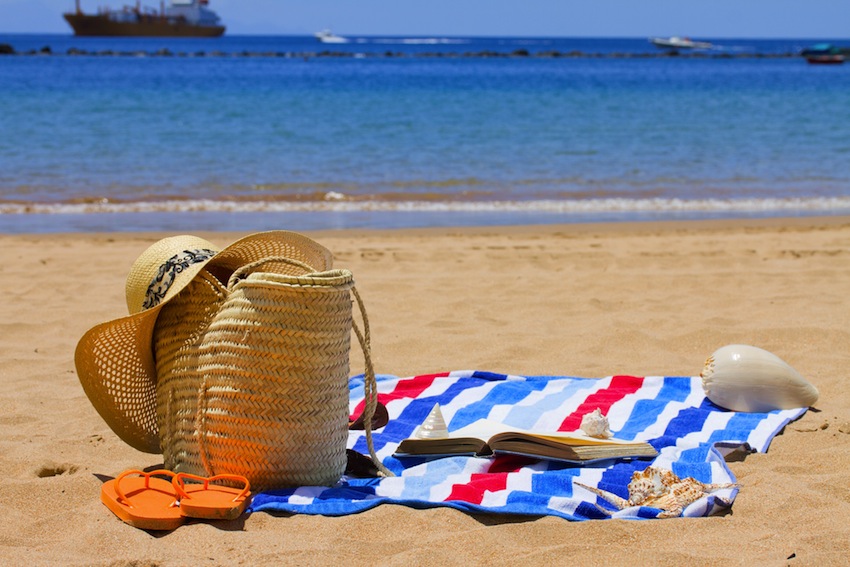Stay Safe in A Heat Wave

As temperatures head into the 90s, remember to bring a bottle of water to the beach to help yourself stay hydrated. Sunbathing image via Shutterstock.
It’s hot outside, and the heat isn’t going anywhere. With temperatures reaching the 90s this week, Bostonians need to start getting ready for the summer heat. Of course, the heat can be great—long days at beautiful pools and family barbecues—but it an also lead to an array of medical problems.
Mayor Menino helped kick off the first official day of summer last week by announcing the opening of Boston’s outdoor public pools, most of which will be open every day starting this weekend. But in a press release today, he warned residents to be careful of the heat.
“Summer is officially here, and it’s a great time to explore all of the wonderful activities Boston has to offer,” Menino says in the release. “It’s a fun time to be out and about in the city, and we just want everyone to be safe while enjoying the warm weather.”
So what do we need to do to be careful in this heat?
Dr. Jonathan Olshaker, the Chief of Emergency Medicine at Boston Medical Center, says that it’s important to remember that heat stroke, which is the worst-case scenario during hot summer days, can be fatal. Because of this, it’s important to respect the heat and hydrate.
“Heat illness is usually on a continuum,” Olshaker says. “Heat stroke is the worst, but the heat can also just make you feel ill. You may become tired, weak, and dizzy, and you may experience muscle cramps, headaches, and nausea.”
Normally, your body will compensate for the heat by sweating. You’ll also often become thirsty, which helps your body to hydrate and replenish itself. But in rare cases, especially in cases with older people, young children, and people with chronic disease, the body is unable to compensate for the heat, and medical help will be necessary.
Olshaker’s tips for surviving the heat are basic:
“Staying healthy during hot days is definitely a family and community job. People need to look out for each other,” he says. “The hallmark symptom of heat stroke is behavior change, which you likely won’t notice in yourself. It’s important that people pay attention to each other, especially since this is the first very hot week of the year.”
To avoid the ill effects of heat, Olshaker also recommends that people stay out of the heat as much as possible. Athletes, especially, should minimize their time outside.
“Don’t run outside on days like this,” Olshaker says. “Or if you have to, run earlier in the morning or later at night, and slow your pace.”
Olshaker also recommends drinking lots of fluids to avoid dehydration, especially after spending time outside, and wearing loose and light clothing.


